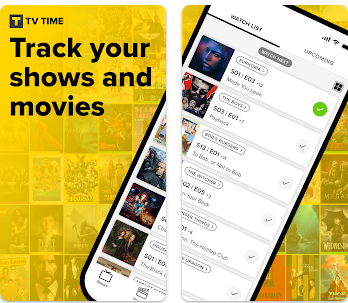In the ever-evolving landscape of mobile applications, few events spark as much intrigue and concern as the sudden disappearance of a popular app. The case of TV Time, a tracking tool and social platform for television and movie enthusiasts, serves as a striking example. With a rich user base exceeding 30 million registered accounts, including 2.5 million active monthly users, the app’s vanishing act from Apple’s App Store raised urgent questions about its future and the broader implications for app developers navigating the complex world of content moderation and copyright.
The Impact of Absence
For avid users of TV Time, the app’s absence wasn’t just a minor inconvenience; it disrupted their routine of tracking episodes, engaging in discussions, and participating in a vibrant community. Users depend on the app not only for its tracking capabilities but also for the social experiences it fosters. Thus, when the app went dark on the App Store, users took to social media, voicing their concerns and yearning for updates on its status. Despite the efforts of the company, the silence was deafening for weeks, illustrating how crucial timely communication is in maintaining user loyalty in the face of adversity.
On November 1, during this tumultuous period, TV Time reassured its users via social media that the company was actively working with Apple to bring the app back. However, the vague nature of this announcement left many in the dark regarding the causes of the app’s removal. It wasn’t until TechCrunch began probing both TV Time and Apple that further details about the underlying reasons for the removal came to light, emphasizing how quickly misinformation can spread in the absence of clear communication.
A Software Developer’s Nightmare
According to Whip Media’s Chief Marketing Officer, Jerry Inman, the crux of the issue was linked to a mismanaged intellectual property complaint. The saga unfolded when TV Time users uploaded cover art from various television shows and movies, leading to a copyright claim that resulted in a takedown notice filed under the Digital Millennium Copyright Act (DMCA). This claim brought to the forefront the ongoing struggle between app developers and copyright enforcement—an area fraught with complexities.
The situation escalated when the complainant, unable to provide proof of ownership, still demanded a financial settlement. TV Time, committed to abiding by legal statutes, did not acquiesce, leading to a further notification to Apple claiming that the issue was unresolved. Inman criticized Apple for its handling of the situation, arguing that the tech giant places developers in precarious positions by making unilateral decisions based on potentially insufficient evidence. This instance underscores the formidable power wielded by Apple over its App Store ecosystem, raising important questions about fairness and transparency in content moderation practices.
Fortunately, the crisis concluded fairly quickly for TV Time, with the app making a return to the App Store after the dispute was resolved. Still, the event serves as a cautionary tale regarding intellectual property issues in the app marketplace. It illustrates how an app can be removed from a vital distribution platform based on the whims of a copyright complainant, without rigorous fact-checking or consultation with the accused developers. As the digital realm continues to evolve, app developers must consider the implications of copyright and intellectual property rights at every step of their design and distribution processes.
Moreover, this incident highlights the latent vulnerabilities developers face when relying on platforms controlled by larger corporations. Developers must navigate the intricate web of copyright laws while simultaneously maintaining supportive user communities. This dynamic often leads to tough choices and, in extreme cases, can even threaten the viability of a successful application.
As we reflect on the recent challenges faced by TV Time, it’s essential to recognize the role of user communities in these scenarios. The rapid mobilization of users on social media illustrated a commitment to the platform, as they voiced concerns and rallied in defense of the app. The engagement of a passionate user base can often be a powerful counterbalance to the challenges posed by larger corporate entities. It emphasizes the need for developers to foster open lines of communication and active engagement with their communities, particularly in times of crisis.
In the end, the saga of TV Time’s temporary exit from the App Store is more than just a tale of a single app; it is a reflection of the broader dynamics between developers, their communities, and powerful digital marketplace platforms. As we move forward, it will be crucial for all parties involved to cultivate a transparent and equitable digital ecosystem that prioritizes user interests while respecting copyright rights.


Leave a Reply